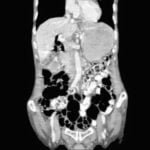“Saving Lives Through Kidney Donation”
Renal transplant donation is a life-saving procedure that involves transferring a healthy kidney from a living or deceased donor to a person with end-stage kidney disease. Here’s a detailed explanation addressing its benefits, safety, and the need for increased awareness:
Benefits for the Recipient:
- Improved Quality of Life: A renal transplant offers patients a chance to live a normal life, free from the restrictions of dialysis, which can be time-consuming, physically exhausting, and mentally taxing.
- Better Survival Rates:
Transplant patients generally have longer life expectancy compared to those who remain on long-term dialysis. - Restoration of Kidney Function:
A transplanted kidney restores natural kidney function, improving the patient’s overall health by eliminating toxins and managing fluid and electrolyte balance effectively. - Fewer Dietary Restrictions:
Unlike dialysis patients who must follow strict diets, transplant recipients typically enjoy more dietary freedom. - Psychological and Social Benefits:
Transplantation reduces the mental strain and social limitations caused by chronic kidney failure and repeated dialysis sessions.
Safety for the Donor:
- Thorough Medical Evaluation:
Potential donors undergo rigorous medical and psychological evaluations to ensure they are fit for donation and can live a healthy life with one kidney. - Surgical Advancements:
Modern surgical techniques, such as laparoscopic nephrectomy, have minimized risks and shortened recovery times for donors. - Post-Donation Care:
Donors receive lifelong follow-ups to monitor their health. Studies show that kidney donors live as long as, or longer than, the general population, likely due to the strict health screening process. - Minimal Long-Term Risk:
Research indicates no significant long-term health risks associated with living kidney donation, provided the donor maintains a healthy lifestyle.
Addressing Fears and Misconceptions:
- Parallels with Blood Transfusion Fears:
In earlier times, there was significant resistance to blood transfusion due to fear and misinformation. Over the years, education and awareness campaigns transformed public perception, making blood donation a widely accepted, life-saving practice. Similarly, kidney donation faces challenges due to fear of surgery, lack of knowledge, and cultural or religious beliefs. These barriers can be overcome with effective awareness programs. - Misconceptions About Living with One Kidney:
Many believe that living with one kidney might lead to severe health problems, but studies confirm that most donors lead healthy, active lives post-donation.

The Need for Increased Awareness:
- Education Campaigns:
Public education about the safety of kidney donation, its impact on recipients, and the heroic role of donors can significantly increase willingness to donate. - Encouraging Family and Altruistic Donations:
Many patients wait for years for a kidney from a deceased donor. Promoting living donations among family members and altruistic donors can reduce waiting times and save more lives. - Community and Cultural Engagement:
Engaging religious leaders, community heads, and social influencers can address cultural taboos and misconceptions about organ donation. - Highlighting Success Stories:
Sharing stories of donors and recipients who have thrived post-transplant can inspire others to come forward and donate.
Conclusion:
Renal transplant donation is a powerful way to save lives and restore hope for patients with end-stage kidney disease. While fears and misconceptions persist, they can be addressed through education, awareness, and supportive healthcare policies. Just as blood transfusion evolved into an essential medical practice, kidney donation has the potential to become a routine and celebrated act of altruism that transforms lives. Increasing awareness and promoting a culture of donation can bridge the gap between need and availability, offering countless patients a new lease on life.
Join the mailing list!
Get the latest articles delivered right to your inbox!

